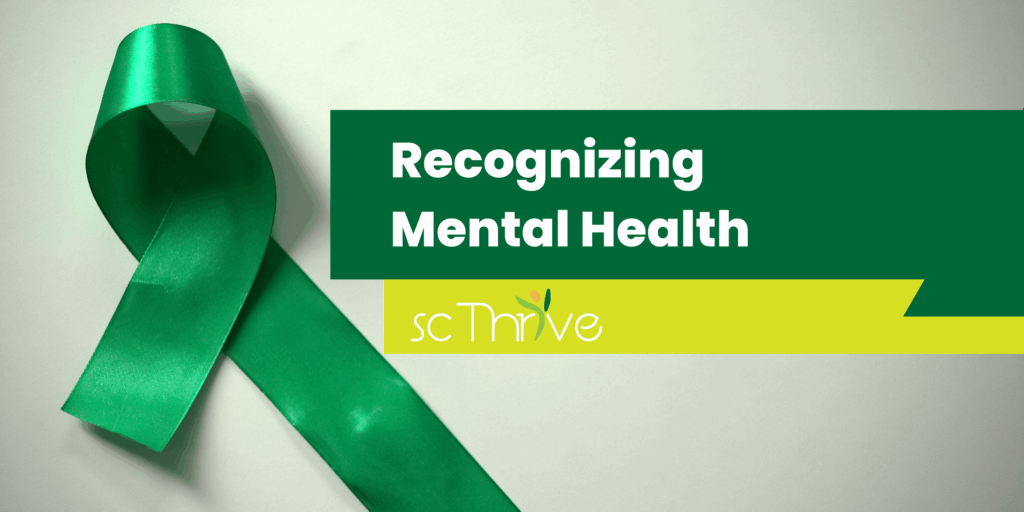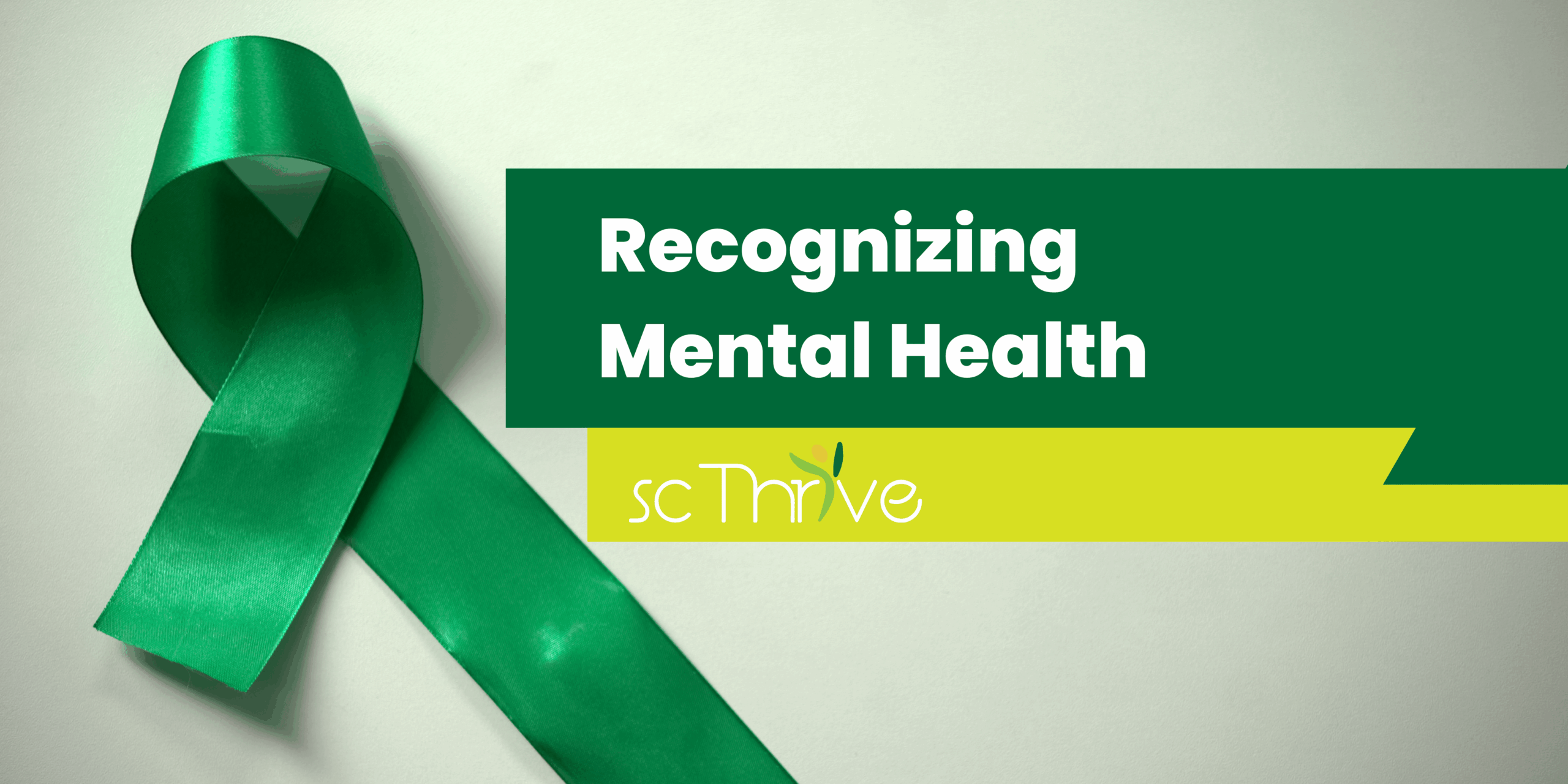
Health doesn’t stop at physical health. Recognizing Mental Health is an incredibly important part of overall health at every stage of life, from childhood through adulthood. Our mental health affects how we think, feel, and act. It also helps determine how we handle stress, relate to others, and make choices. Being aware of your mental health is just as important as being aware of the signs and symptoms. Let us become aware and educate ourselves and others!
Things to do to Spread Awareness
Although May is Mental Health Awareness Month, you can do a lot to show your support and help others all year long. Here are a few examples.
- Share Your Story – What better way to spread awareness for mental health than by talking about your own experiences. You would be surprised how many others will identify with what you’ve been through or realize how they can be more understanding of those going through something similar.
- Share Symptoms and Things to Look For – Signs and symptoms of mental health can vary depending on the disorder, circumstances, and other factors. These symptoms can affect thoughts, emotions, and behaviors. Sometimes these symptoms may appear as physical problems, such as headaches and stomach pains.
- Self-Care – Self-Care requires checking in with yourself, asking yourself how you’re doing, and recognizing your body needs. Self-care is anything that puts a smile on your face and makes you feel cared for, even if it’s you caring for yourself. Regularly engaging in self-care could help you put your best foot forward. Check out this blog for more self-care tips.
- Keep the Conversation Going- Openly talking about mental health may encourage people to seek professional help. Opening up about mental health will allow for a true expression of how you feel and will allow others the chance to help guide you through difficult times. The more you talk about mental health, the more normalized it will become.
Most mental health disorders don’t improve on their own. If they go untreated, they may worsen over time and cause serious problems. Typically, the sooner you can connect a person to professional and self-help resources, the better the outcome for the person. For ideas on things, you can do to start your self-care routine, visit HERE.
Stigma Vs. Reality
Sometimes people do not receive treatment due to the stigma attached to mental health and mental illnesses. It’s crucial to reduce the stigma around mental health issues, so individuals and families are more inclined to seek help. Setting judgment aside and listening non-judgmentally is key to showing care and compassion to those experiencing mental illness. Remember, words have power, so be careful how you speak to others and be mindful of the language you use. Those suffering from mental health issues are regular people just like you who may be going through a difficult time trying to do the best they can and trying not to give up.
Enjoy life to the fullest by taking care of yourself mentally and physically. Help spread the word through awareness, support, and advocacy. Want to take steps to help destigmatize mental health? Sign-up for a Mental Health First Aid Training at scthrive.org/mentalhealth! Find more ways you can observe Mental Health Month HERE.
